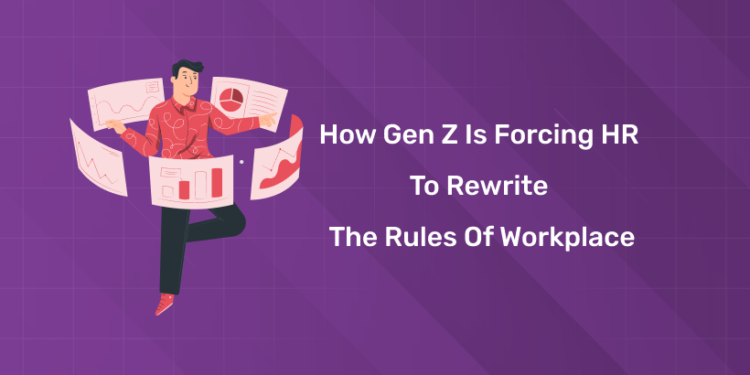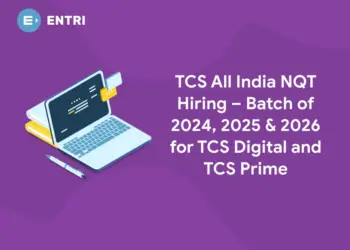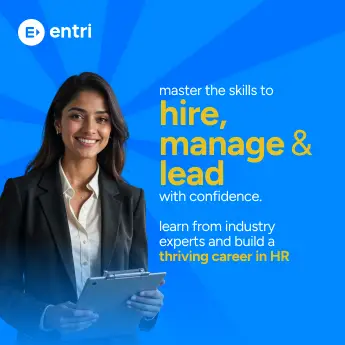Table of Contents
Introduction
Gen Z is no longer the future of the global workforce. They are already part of it making up to 27% of the global workforce by 2025. This has in turn fundamentally challenged the traditional HR practices as never before. Unlike the generation of people who came before them, they openly condemn the old ways and rules. They demand progressive transformations forcing the HR department to reconsider their approach in framing policies, recruitment criteria and process as well as work culture as a whole. So this demographic ranging from the people born between 1997 and 2012 are not in any way comprising the age-old workplace culture. Their strong resistance pushes the HR department to adapt according to the relevant demands to keep things rolling. Here is a breakdown of the impact this has on the work environment.
Transform Your HR Career with our HR Management Online Course. Enrol Now!
The Rise of Gen Z in the Workforce
The population study says that about 30% of the global population comprises Gen Z. This number suggests the growing influence they have worldwide. Their cut and right approach builds higher expectations that overruns the traditional workplace norms and policies. This digitally native generation does not play along the compromising attitude of the previous generation who prioritize job security and financial stability. In short, Gen Z functions with a fundamentally different value system.
Studies show that almost 77% of Gen Z prioritize work-life balance while looking for job opportunities. This marks a shift from the romanticized hustle culture attitude that dominated the past phase of work culture that lasted for decades. It is not about them being lazy or anything like that but they value smart work with clear boundaries between work and social life. It redefines what professional success looks like with personal fulfilment, purpose, mental health, and social impact weighing along the balance of pay scale and career progress. Flexibility is what they look for in a job.
All this has been given a spark with the historic event of the 2019 pandemic situation. Having entered during a global phase of uncertainty they realized how a traditional system can crumble just like that. This had a natural impact on framing their own norms and ideology about the work environment making them more strategic as well as demanding.
Become an HR Expert – Enroll in Our HR Management Course Today!
Unlock the secrets to effective Human Resource Management with our expert-led course! Learn recruitment, employee relations, performance management, and more to build a thriving workplace. Start your journey toward a successful HR career today!
Know MoreChanging Expectations: What Gen Z Wants in the Workplace
Gen Z does not hold back any questions that pop up in their mind. They openly ask why things are done a particular way and suggest an alternative they feel fit. They never settle with “we have always been doing it this way”.
Flexibility is the Priority
The typical 9 to 5 jobs are a big “No” for the majority of Gen Z. You can find a great number of employees leaving their jobs. They celebrated it as they found an alternative that gives them a better quality of life with higher paying income options. This generation does not just want remote jobs but complete autonomy on accomplishing their tasks. Thus the office environment has given way to hybrid models that prioritize delivering timely service than being present. Many companies have already adapted to this model by implementing flexible work arrangements. Goldman Sachs, Target, and JP Morgan Chase are some of them. These firms recognize that authentic self-expression coupled with creativity and innovation is the new form of professionalism.
Authentic Diversity, Equity and Inclusion
For Gen Z, diversity and inclusion are the fundamental business requirements. Reports suggest that 83% of them prioritize D&I while evaluating employers. They closely watch the candidates to distinguish between genuine commitment and performative gestures. This generation does research on the company D&I metrics, examines leadership diversity, and evaluates inclusion efforts through employee reviews beforehand. Diversity transcends traditional demographics covering factors such as socioeconomic backgrounds, gender identity as well as disability criteria. About 60% of them demand more inclusive gender options in the workplace suggesting identity recognition and support.
Continuous Learning and Growth Opportunities
Gen Z shine brighter when they stay consistent about continuous learning and staying updated. About 76% of Gen Z believe this is essential for career growth and staying relevant in the field. At the prospective career choices, they look for personalized development plans, opportunities for microlearning, and clear pathways for career advancement. This group of employees look for feedback and regular performance reviews. They prefer regular check-ins over annual performance reviews and value recognitions that each employee deserves. Gen Z are eager about ongoing dialogue on their growth and contributions. This being the circumstance, companies that fall short of learning opportunities fail to retain Gen Z talent beyond their first year.
Mental Health and Wellbeing Support
Gen Z’s workplace revolution got the most attention with their attitude towards mental health. Studies show that about 81% of Gen Z have considered leaving jobs for mental health reasons. This highlights mental wellbeing as a major concern. This generation openly discusses mental health conditions in ways that previous generations never could. On a positive note, several companies have incorporated mental health days, employee support programmes and further access to wellness platforms. For instance, Pinterest arranges quarterly “Brain-Care Days” that result in 9% spikes in productivity following each mental health break. This stands as a practical example of how prioritizing wellbeing directly impacts business outcomes.
Tech-Driven Work Environment
Another key factor that Gen Z despises is staying outdated. The less updated their system is the more frustrated they get. They prefer having a technology driven work environment that makes work smooth and fulfilling. Companies that embrace collaboration tools and digital-first strategies are their choice. In a digital landscape that has come up to automation, their demand and preferences can be justified and hence HR leaders are pushed into adapting to their ways.
The Impact on HR Policies and Practices
The HR department is now under pressure to undergo transformation as it has become non-negotiable. Here are the major changes they have started working on.
Shift in Recruitment Strategies
The recruitment pattern is undergoing transformations as the HR departments have adapted to the Gen Z expectations. Studies show that almost 88% of Gen Z prefer digital onboarding experiences. Social media platforms, especially LinkedIn, are among the primary channels for finding the right talent and exhibiting employer brands. Companies have started focusing on authentic storytelling that highlights real employee experiences.
Gamified Onboarding
The entire digital workplace environment has made the onboarding process as gamified and personalized as possible. The traditional generic job postings that were filled with corporate jargons are now being replaced by socially engaging onboarding experiences.
Performance Management
As companies have shifted their attention to Gen Z preferences, annual reviews are being replaced by continuous evaluation and feedback systems. This ensures real-time recognition, skill development, and further growth opportunities. Companies that have started implementing these changes have reported about 42% higher engagement levels among Gen Z employees.
Updating Benefits and Compensations
HR departments are also reconsidering benefits packages to address priorities laid by Gen Z employees. Traditionally offered benefits like health insurance and retirement plans remain intact. In addition to these, there are mental health resources and wellness programs incorporated among the fundamental benefits. With many states implementing pay equity, transparency in the pay scale has become non-negotiable. This aligns with Gen Z expectations for fairness and openness. Personalized benefits are also part of certain packages.
Transform Your HR Career with our HR Management Online Course. Enrol Now!
Challenges HR Faces with Gen Z’s Demands
HR leaders face real pressure under the Gen Z demands and expectations. Here are the major challenges they face under the HR title.
Generational Friction
The most challenging task for the HR professionals is bringing together diverse and distinct generations of employees working simultaneously. Reports say that around 74% of business leaders find Gen Z more difficult to work with than previous generations. This is mainly because the expectations and communications styles do not align among the employees belonging to different generations. Older employees may resist new norms being resistant to change. Developing flexible policies that incorporate diverse working styles can be a feasible solution. To make this possible, having well crafted change management strategy and comprehensive training programmes can be considered. This can help all generations understand and adapt to evolving workplace norms.
Budget Constraints
Bringing changes to the existing system to implement the expectations and demands of Gen Z requires efficient investment in technology and policy development. Many companies struggle to include resources effectively. Once some of them could overcome the hurdles, however, they saw substantial increase in their productivity. Investing in Gen Z friendly policies can reduce turn over costs and enhance brand identity. Offering personalized perks can be costly but embracing both hard costs and intangible benefits like employee satisfaction and brand reputation can ultimately bring success.
Policy Overhaul
Gen Z’s workplace expectations that include flexibility, inclusivity and transparency require a full-scale policy overhaul. Many of the HR policies were built during a different era. Outdated software and long-standing cultural norms has to be attended to. Updating outdated systems takes time and buy-in. Stakeholder buy-in is also crucial. HR does not act in isolation and any policy shift requires buy-ins from senior leaderships, finance teams and legal departments. Policy changes are not plug-and-play. They need:
- Pilot programmes to test feasibility.
- Feedback loops to refine implementation.
- Training sessions to ensure adoption.
- Ongoing evaluation to measure impact.
Retention Pressure
Gen Z’s approach to career progress presents retention challenges for many organization policies. Gen Z is quick to leave if values do not align. The average job tenure being 1.5 years during their first years at any organization, rethinking the retention strategies is crucial. However, this cannot be looked at as them being disloyal. Their tendency to leave is based on their priority to have career growth and higher ambitions. Studies report that about 54% of Gen Z regularly browse for new opportunities. This indicates their active attempt at career management and less likely points to any form of dissatisfaction with their current roles. Therefore, companies that offer career advancement pathways, and growth opportunities can significantly result in improved retention rates. But these challenges are also opportunities to build workplaces that are more human, inclusive, and future-ready.
Become an HR Expert – Enroll in Our HR Management Course Today!
Unlock the secrets to effective Human Resource Management with our expert-led course! Learn recruitment, employee relations, performance management, and more to build a thriving workplace. Start your journey toward a successful HR career today!
Know MoreSuccess Stories: Companies Leading the Way
Canva’s Purpose-Driven Approach
Canva presents successful Gen Z engagement through their initiative labelled “Force for Good”. It pushes employees to contribute over 10,000 hours per year to various community projects. This commitment to purpose-driven work has helped Canva achieve remarkable success. About 92% employee satisfaction rate has been recorded, making it one of the most desirable workplaces for young professionals.
Progressive Policy Implementations
Futuristic companies are implementing comprehensive strategies that address Gen Z priorities. This includes:
- Hybrid work models that provide autonomy while maintaining collaboration opportunities.
- Skill-based recruitment that prioritizes potential over formal education qualifications.
- Transparent career pathways with clear criteria for career progression and development opportunities.
- Compatible mental health support programmes including therapy access and stress management resources.
Technology Integration Success
Organizations that successfully engage Gen Z are utilizing technology to streamline HR processes. The newly established standard tools for attracting and retaining young talent include AI-powered recruitment platforms and mobile-first HR applications. Companies implementing these technologies report higher engagement rates and improved efficiency. Some organizations are already getting on track with it:
- Google is one of the first companies that embraced flexible work and continuous learning opportunities.
- Unilever links job roles to sustainability goals. This attracts value-driven Gen Z professionals.
- Spotify offers special occasion specific events like mental health days and “work from anywhere” policies. This sets a benchmark in employee well-being.
These companies prove that meeting Gen Z’s expectations is, in fact, profitable. The more the employees are engaged, the better retention and employer branding are formed.
Transform Your HR Career with our HR Management Online Course. Enrol Now!
Conclusion: The Future of HR in Gen Z Era
The transformation sparked by Gen Z marks a fundamental shift in how companies accomplish success. Their entry to the workplace has changed how success is measured and how organizations create value. HR departments that embraced this transformed setup position themselves as strategic business partners. HR being responsible for driving innovation, attracting top talent, and building sustainable competitive advantages, the shift marks an important progression. The firms that thrive in this new landscape are those that recognize Gen Z’s demands not as challenges to overcome, but as opportunities to create a more effective, inclusive, and value-centred workplace. The game changing move includes adapting policies, embracing flexibility, and prioritizing the wellbeing of employees. These companies can thus build cultures that attract the best talent while bringing exceptional business results.
Become an HR Expert – Enroll in Our HR Management Course Today!
Unlock the secrets to effective Human Resource Management with our expert-led course! Learn recruitment, employee relations, performance management, and more to build a thriving workplace. Start your journey toward a successful HR career today!
Know MoreFrequently Asked Questions
What priorities do Gen Z have at their workplace?
Gen Z primarily prioritizes work-life balance. In addition to this, flexibility, continuous learning, mental health support, and authentic diversity and inclusion completes the list.
How is the HR department adapting to the Gen Z attitude at the workplace?
HR has started offering hybrid work and digital-first HR systems among others.
What percentage of the workforce is occupied by Gen Z in 2025?
Gen Z approximately makes up 27% of the global workforce by 2025. This represents a significant demographic shift that requires organizational adaptation.
What benefits packages are demanded by most Gen Z?
Gen Z values comprehensive learning assistance, flexible PTO policies, wellness programmes, and customizable benefits that address individual needs.
What major challenges do HR face while managing Gen Z employees?
Managing multigenerational workforce dynamics is a hectic task in addition to addressing high expectations from Gen Z. Implementing necessary technology and policy changes, and balancing flexibility with organizational needs also makes up the list.
What are the learning and development approaches that work best for Gen Z?
Personalized development plans, mentorship programmes, and technology-enabled training provides immediate application opportunities and regular feedback.
How can HR spike Gen Z retention rate?
Retention rate can be increased by offering meaningful work, continuous feedback, and personalized benefits.
How can HR future-proof their strategy for Gen Z?
By listening, adapting, and co-creating policies with employee input.
What are the major criteria to attract Gen Z during the recruitment process?
Through authentic branding, social media engagement, and purpose-driven messaging.
What kind of work environment does Gen Z usually prefer?
For Gen Z, the work environment should be flexible, inclusive, tech-updated and purpose-driven.














